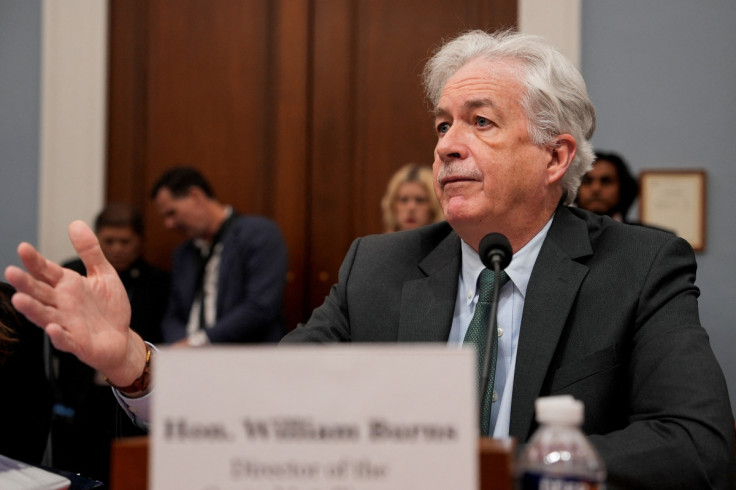US CIA Chief Burns Visited China In May

CIA director William Burns visited China last month for talks with Chinese counterparts, two U.S. officials said on Friday as Washington seeks to boost communications with Beijing.
"Last month, Director Burns traveled to Beijing where he met with Chinese counterparts and emphasized the importance of maintaining open lines of communication in intelligence channels," one of the officials told Reuters.
News of the visit by the head of the U.S. intelligence agency, first reported by the Financial Times, comes as President Joe Biden's administration has been pressing to maintain open lines and schedule meetings between various top officials in Washington and Beijing amid tense relations.
Burns, a veteran U.S. diplomat before leading the CIA, has made dozens of sensitive overseas trips as head of the agency, including to hold talks with Russian counterparts, as well as the Taliban in Afghanistan. U.S. officials are careful to stress that his intelligence-related missions are not directly linked to U.S. diplomacy.
The CIA, which does not regularly announce such visits, declined to comment on the China trip.
Ties between the world's two largest economies are strained over issues ranging from Taiwan and China's human rights record to military activity in the South China Sea.
U.S. Secretary of State Antony Blinken postponed a planned February trip to China after an alleged Chinese spy balloon flew through U.S. airspace over sensitive military sites, kicking off a diplomatic crisis.
But the White House has said efforts are continuing to facilitate visits by Blinken, as well as Treasury Secretary Janet Yellen and Commerce Secretary Gina Raimondo.
Some Biden administration critics have questioned U.S. overtures to China, arguing that past decades of engagement have failed to change its line on a range of trade, security and human rights issues.
U.S. Defense Secretary Lloyd Austin shook hands with China's Minister of National Defense Li Shangfu on the sidelines of a security summit in Singapore but the two did not have a "substantive exchange," the Pentagon said on Friday.
China earlier declined a formal meeting between Austin and Li, who is under U.S. sanctions, during the Shangri-La security summit taking place over the next few days.
Separately, White House national security adviser Jake Sullivan said on Friday that the U.S. wanted to engage with China "without preconditions" on nuclear arms control issues, but that Beijing continued to be unwilling.
"Simply put, we have not yet seen a willingness for the PRC (People's Republic of China) to compartmentalize strategic stability from broader issues in the relationship," Sullivan said in a speech at the Arms Control Association, noting that this had been the bedrock of nuclear and strategic security for decades.
"That's why we're also ready to engage China without preconditions, helping ensure that competition is managed, and that competition does not veer into conflict," Sullivan said.
Sullivan said he broached the issue in two days of talks in Vienna with China's top diplomat Wang Yi last month.
"We'll see what the PRC chooses to do," he said.
© Copyright Thomson Reuters {{Year}}. All rights reserved.





















